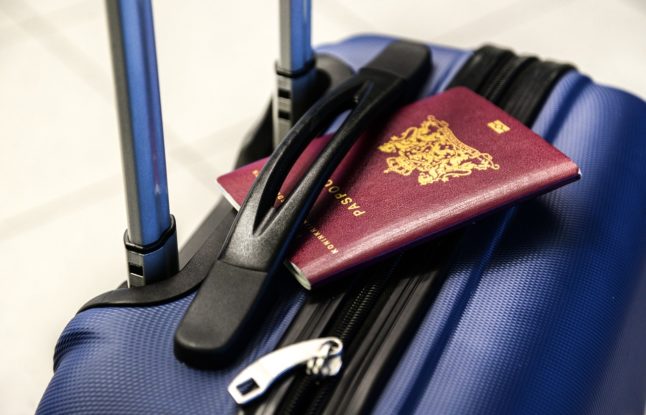The short answer to this question — taken from the official government site — is: “Since January 1st 1992, Swiss law has allowed multiple citizenship without any restrictions.”
That means when people apply to become Swiss, they don’t have to give up their previous nationalities like is the case in some other countries.
This does not, however, define the word ‘multiple’, leading to a conclusion that any number of passports is allowed.
While there are statistics on how many people in Switzerland have two nationalities — about 19 percent — as well as where they live, no data is available about the number of residents with three nationalities.
READ ALSO: Which parts of Switzerland are home to most dual nationals?
What exactly does triple nationality mean?
There are two scenarios possible: one (and probably the most common one) is a Swiss passport in addition to two foreign ones.
But another possibility is that a foreign national living in Switzerland with a B or C permit has three foreign passports, juggling each one when he or she travels abroad.
If, say, someone has a US, EU, and another nationality, they would use the American passport to travel to the United States, the EU one within Europe, and the third one to that specific country.
We don’t know for certain why some people choose to have three passports, as no studies have been done in Switzerland on this issue.
However, anecdotal evidence suggests that reasons range from practical to sentimental.
Under the former category, the reasons include ease of travel (as mentioned above), and under the latter one, family ties to various nations.
What you should know if you have multiple (more than two) passports
Sentimental reasons aside, in practical terms the more nationalities you have, the more problems you could end up with.
You could argue that you can access more countries with fewer hassles, especially in terms of visas and other restrictions.
That may be true, but there are other things to consider as well.
‘Limited range of services’
Assuming you have a Swiss passport along with two others, you are considered Swiss in Switzerland, but if you use your other passports to travel abroad, you may encounter complications if you find yourself in need of assistance.
The reason is that “individuals with multiple citizenships may be entitled to receive only a limited range of services” from Switzerland’s Foreign Ministry, according the government.
That is because Swiss citizens who are also citizens of another country “are treated by the local authorities as their own citizens because they consider that the non-Swiss citizenship takes precedence.”
So if you need assistance while abroad, deciding which of your countries of citizenship should act on your behalf could create quite a conundrum.
This is not likely to happen often — and may not happen at all — but it is nevertheless a good idea to keep this in mind.
READ ALSO: What dual nationals in Switzerland should know when travelling
But there is also another reason why having three nationalities could backfire.
You might have to choose
It is possible that under the law of one of the countries of your nationality, you automatically lose your citizenship of that country if you also hold passports of another country / other countries.
This, by the way, applies to dual citizens as well, and not only those with multiple passports.
In Europe, for instance, countries including Austria and the Netherlands don’t allow dual or multiple citizenships, and the list is much longer worldwide.
Germany generally doesn’t allow dual or multiple citizenships for non-EU nationals (with exceptions), however the government is working to change that law.
So you’ll also have to research the rules in each country where you hold a citizenship.



 Please whitelist us to continue reading.
Please whitelist us to continue reading.
Member comments